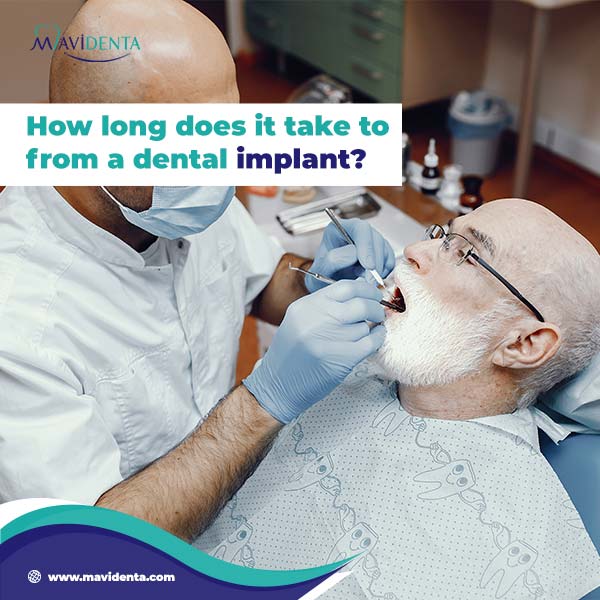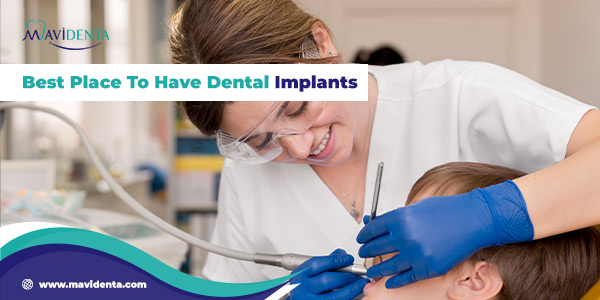Dental implants can be a fantastic way to replace missing teeth, but proper aftercare plays a massive role in their success. In fact, following post-operative instructions carefully can significantly improve the odds of a smooth recovery and long-lasting implants.
This blog will explore essential care tips you should follow after getting dental implants. We’ll also answer a common question: how soon after a dental implant can I drink alcohol, you finally enjoy that celebratory drink after your procedure?
What is a dental implant, and how does it work?
Dental implant surgery is a modern and highly successful method of replacing missing teeth. It involves the placement of titanium supports in the jawbone, which act as artificial tooth roots. These supports are then topped with lifelike artificial teeth that closely resemble natural ones.
The procedure is performed in stages and may require several months to complete as it requires proper healing and stability of the jawbone around the implants. The main advantage of dental implants is their ability to provide solid support for the new teeth.
This alternative is often preferred over removable dentures and bridges, which can cause discomfort and inconvenience. Dental implants offer a durable and natural-looking solution for tooth replacement.
Read more: How much is dental implants?
How long does it take to heal from a dental implant?

Speaking of how soon after a dental implant can I drink alcohol? The success of a dental implant operation depends significantly on your effort to maintain your teeth after the operation. Here are the post-dental implant instructions for taking care of your teeth and the most important tips:
- The doctor will prescribe painkillers, such as paracetamol if you feel pain after dental implants.
- The doctor may prescribe an antibiotic after the operation, depending on your condition. In this case, it is recommended that the patient complete the total dose and check with the doctor before taking it.
- It would help if you took care of your artificial teeth like natural teeth. Although artificial teeth are not susceptible to decay, their cleanliness must be maintained as follows:
- Brush your teeth daily using a toothbrush and dental floss.
- Regular visits to the dentist.
- It is recommended to use a special toothbrush with a small, pointed head similar to the toothbrush used to clean metal braces in order to clean artificial teeth well to avoid problems in the healing process that may occur due to food collecting between the teeth or gingivitis.
- It is recommended to modify the nature of your diet for several weeks after dental implant surgery so that it consists of soft foods, such as pasta and soups, to ensure complete healing of the site of the operation.
- You should avoid eating hard foods, such as ice and candy, even after complete recovery so as not to cause any harm to your artificial and natural teeth alike.
- It is recommended to stop smoking, as smoking slows down the healing process. In addition, smoking increases the incidence of adverse complications after dental implants.
- The dental implant process often requires a period of 3 to 4 months from the beginning until complete recovery. During this period, the doctor will schedule a number of visits to the dental clinic to verify that there are no problems with the teeth, jawbone, or gums.
- You should not hesitate to ask your dentist if you have any questions or inquiries regarding the dental implant procedure or if you have dental conditions that require special care.
Why is alcohol bad for dental implants?
When it comes to how soon after a dental implant can i drink alcohol ?
Alcohol abuse is another unhealthy habit that can ultimately lead to implant failure. Drinking alcohol can harm your gums, including oral cancer. For example, drinking reduces the amount of blood that reaches the gums.
Therefore, if you drink alcohol after the transplant, your gums and bones will not recover and may suffer irreparable damage. In addition to lowering white blood cell counts, alcohol can impair the body’s ability to fight bacterial infections. In addition, alcohol affects your body’s ability to produce proteins needed for healing.
Alcohol can hinder the healing process after implant surgery and worsen irritation and dry mouth, leading to gum disease and dental implant defects. Alcohol should be avoided during recovery after implant surgery and consumed in moderation afterward.
Also check: what is a dental implant made of ?
How soon after a dental implant can I drink alcohol?

If you are a fan of drinking alcohol, and are wondering how soon after a dental implant can i drink alcohol ? Mavidenta doctors generally recommend that you reduce or completely prevent drinking alcohol before undergoing dental implant surgery, because of its extremely serious harm to your health.
The doctor also recommends stopping alcohol intake after the operation. It delays the healing process as well as recovery, so doctors advise stopping taking it until the recovery period is completely over.
What are some tips to prevent complications from drinking alcohol after a dental implant?
If you are wondering about how soon after a dental implant can i drink alcohol ? there are no steps that limit the risks of alcohol to the body, but here are the steps of the post-operative instructions that should be observed after dental implants:
Avoid Tobacco:
To promote oral healing it is highly recommended to stop smoking.
Avoid strenuous activities:
Avoid strenuous activities for 7-21 days after the transplant to facilitate the healing process.
Practice good oral health habits:
In addition to being necessary for your oral health, they are necessary for maintaining oral implants, but be gentle and do not apply pressure when cleaning the operation site, whether using dental floss or a toothbrush.
Also, avoid mouthwash for 24 hours after implantation. Avoid using the toothpick to clean the area, and do not use any sharp tools to clean the teeth.
Watch your diet:
In the days following the operation, it is recommended to limit solid foods and choose soft or liquid foods in order to prevent any pressure on the area as much as possible, and also avoid eating or drinking anything very spicy.
Sugar is an enemy of implants as well as teeth, so try to clean any sugar residue from the implant area immediately after eating anything sweet.
You should not eat on implants during the first three months after implantation, because chewing on the implant area is actually difficult and even painful. Also, applying premature forces to the implant area causes painless fibrosis that leads to implant failure.
Pay attention to the sutures:
Be careful not to apply too much pressure to the sutures, whether through brushing or diet.
Use the medications prescribed by the doctor and do not stop taking them without the doctor’s approval. The medications are usually given for a week.
It is best to use ice compresses after dental implants to prevent inflammation and swelling at the operation site, which usually occurs within 24-72 hours after the operation.
Press the sterile gauze that the doctor placed on your tooth slightly and throw it away two hours after the procedure. After two hours, change the gauze every 45 minutes.
Read more: dental implant problems years later: Common Issues and Solutions
Conclusion
Instructions after dental implantation are no less important than the implantation process itself and greatly affect the success rates of the implant. The most important instructions that we recommend after the implantation process are immediate post-implantation advice and general advice on.
How to eat and take care of the mouth after implantation and prevent smoking two days after dental implantation. If you are wondering about how soon after a dental implant can i drink alcohol ? Mavidenta doctors recommend stopping drinking alcohol until the recovery period is over.
FAQ
What are the complications after dental implants?
Complications after dental implants include many of the risks of dental implants that can occur after the implantation procedure, such as severe bleeding after surgery, severe pain that does not go away with painkillers, swelling of the face for more than a week, or high temperature.
When does a dental implant wound heal?
Dental implant wound healing begins two days to a week after the implantation procedure, and the period may increase to about two weeks or more if you have had several dental implants or suffer from any diseases that affect immunity and healing.
How long does pain last after dental implants?
The duration of pain after dental implants varies from one person to another, but on average the pain increases in the first two days after the operation and then begins to disappear gradually over the course of a week. If the pain continues for a longer period than that or increases in intensity, consult a doctor.






